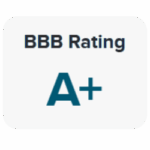If you’ve ever regretted a purchase after buying it, you already know a thing or two about buyer’s remorse. You also aren’t alone: one survey found that over half of Americans report often or sometimes feeling guilty about a purchase.
Of course, it’s one thing when that purchase is a pair of shoes, but it’s something entirely different when it’s a timeshare that costs thousands!
Fortunately, there are ways to cancel a timeshare if you regret signing your contract. Though the resort won’t make cancellation easy, coming prepared and following a few best practices can help. Here’s what you should know.
What Does It Mean to Cancel a Timeshare?
First things first: what do we mean when we talk about how to cancel timeshares?
The FTC requires sellers to have what’s known as a “cooling-off” or “rescission” period for most major purchases. This protects buyers, giving them a short window in which they can return their purchase.
When you cancel a timeshare, you’re using this window to get out of your contract without a penalty. No matter how much you invested in the property, the developer must give you a full refund, no questions asked.
Note that this is a different strategy than a timeshare exit. Timeshare exit companies help people get out of their contracts by transferring ownership. This happens after the rescission window has closed.
Find Out How Long You Have to Cancel
The rescission window of a timeshare varies from state to state. During this window, most states require timeshare companies or sellers to put the buyer’s money in an escrow account. It stays there until either the buyer decides to cancel the timeshare purchase or the rescission period closes, at which point the deal is finalized.
In general, most states will give you somewhere between a few days to around two weeks to cancel. Alaska, for example, has one of the longest rescission periods, as residents can cancel their timeshares within 15 days of signing their contract. Most other states, however, veer toward the lower end of the spectrum, giving residents just 72 hours to cancel timeshares.
Note that what counts as a “day” may also vary from state to state. Some regions don’t count Sundays toward the total calculation, while others only count business days.
If you’ve bought a timeshare in a foreign country, you’ve strayed outside of the FTC’s protection. Be sure to look up the specific policies of the country in question.
In the EU, buyers have two weeks to reconsider their timeshare purchase. In Mexico, it’s five days. Other countries have no rescission period at all, so you’re locked into your contract the second you sign.
The bottom line is that you should always examine your contract. The details are often in the fine print, but you can always fall back on researching the state or country’s laws if you can’t find the information you need.
Understand the Process for Canceling a Timeshare
Like everything else in this post, the details of your cancellation will depend on your contract.
Some contracts allow verbal cancellation, so all you’ll need to do is have a conversation over the phone. Others require an official letter by email, fax, or mail.
No matter what your contract says, we always recommend sending a physical letter. This is safer than a digital message or quick conversation. If the timeshare company tries to make cancellation difficult, a physical letter creates a paper trail you can use to prove that you followed their cancellation policy.
Whenever you cancel in writing, always take note of the required timeline. Your letter has to be postmarked by the deadline specified in your contract.
Write Your Cancellation Letter With Care
As you write your letter, you should once again start by digging into the details of your contract. Any contract from a reputable timeshare company will lay out the requirements for your letter of rescission, and you don’t want to miss them! If you can’t find this information, be sure to call the resort.
Your contract may include specific things you must mention in your rescission letter if you want to cancel. It should also include details on the delivery method and the address to send your letter to.
Most developers will also require a few specific things in the letter:
- Your legal name
- Your address, phone number, email address, and/or other contact details
- The name of the timeshare company
- Your contract or transaction number
- Your membership ID, if applicable
- The date of your purchase
- The date you’re writing to cancel
- A declaration that you want to cancel your contract
- A brief description of your timeshare
- The amount you paid for the timeshare
- A request for this money to be returned
- Your signature
Don’t forget to be firm and confident. Make the most important statements early on in the letter, including the declaration that you want to cancel. Avoid hesitation and passivity.
In addition, feel free to put the essential details in bold. You want to be sure the developers understand your goals right away.
Last, make sure to mail your letter on time: it must be postmarked by midnight on the last day of your rescission period.
Don’t Search for Grounds for Cancellation
When you cancel during the rescission period, you don’t need to provide a reason for cancellation.
Think of it like you’d think of returning a shirt to a store. As long as you’re following the store’s return policy, you don’t need to provide the cashier with a specific reason you don’t want the shirt. You’re allowed to change your mind!
The same is true with your cancellation letter. There’s no need to list any complaints or explain your reasoning.
In fact, we advise you not to provide any reasoning at all, no matter how you feel about your purchase or cancellation.
This gives the timeshare company insight into your mindset, which may offer an opportunity to try extra sales tactics. They may attempt to convince you to keep your timeshare based on the information you’ve provided. Don’t offer them any extra ammunition, and don’t fall for their sales tactics!
Save Key Documents as Evidence
When you’ve finished your cancellation letter, you should save a copy of it for your own records. Having written records can be crucial when you’re dealing with timeshare companies, as they often make cancellation difficult.
When you mail the letter, you should also keep proof of your mailing date. Even if your contract doesn’t mention a mailing method, we recommend sending your letter by certified mail. With this option, you’ll get a receipt you can use as proof of the day when you sent the letter.
Methods that require a signature or return receipt can also be helpful. These methods make it hard for developers to claim they never saw your letter.
Be Prepared to Wait
Your contract may state that you can cancel your timeshare purchase within the rescission period, but it’s not always smooth sailing in practice.
Your timeshare company may try to convince you to retain your purchase. They may offer extra deals or perks if you change your mind about canceling. They may even try to find reasons to claim your rescission letter is invalid.
Though the cancellation letter gets the ball rolling, you may have to wait weeks before the resort agrees to let you walk away from your timeshare.
What If It’s Too Late to Cancel?
Once the cancellation window closes, you are locked into your contract. You are legally required to make all future monthly payments, including additional fees and interest. With the help of timeshare cancellation services, like the ones we provide, you can still be relieved of your contract. There are some things you can try on your own, but in the vast majority of cases, timeshare owners still find the resort unresponsive or simply continue to provide additional perks to keep the timeshare owner.
There are a few states still allow cancellations after the rescission window has closed. The process varies, but it’s often much more difficult than sending a simple letter. In most cases, you’ll need to work with a lawyer to file the correct paperwork.
If you don’t live in one of these states, there are still a few cases where you might be able to cancel after the rescission period. Note that you will still need to find a lawyer and provide them with evidence if you want to get out of your timeshare obligations for the reasons below.
Cancellation Due to Fraudulent Behavior
If you can prove that the timeshare company has engaged in fraud, you may be able to get out of your contract. Timeshare fraud often happens when a company makes false or misleading statements.
Representatives might make false promises about your booking options, for example, or your ability to roll over unused vacation days. They may also lie about the amount you’ll pay in fees and interest.
Cancellation Due to Aggressive Sales Tactics
If the timeshare company used high-pressure sales tactics to close the deal, you may also have a chance of canceling late. These sales tactics must go beyond the normal expectations for a presentation.
Representatives might allow their presentations to run for far longer than promised, for example. They may also fail to give you the perks or gifts they promised for listening to their sales pitches.
Are There Other Ways to Get Out of a Timeshare?
If you’re well outside the rescission window or the tactics above have failed you, there are still other ways to get out of your timeshare purchase. These options aren’t as good as cancellation: they won’t help you recoup your total cost. However, they can help you avoid future payments.
Use the Deed-Back Program
Contact the timeshare developer. In many cases, timeshare companies have “deed-back” or “surrender” programs that allow owners to exit the contract.
You won’t get your money back, and some developers even require owners to pay extra fees for giving back the timeshare early. Despite this, deed-back programs are safe ways to get rid of these unwanted properties.
Sell the Timeshare
Selling a timeshare is often easier said than done. Resale scams are common, and there isn’t as much demand as you might expect. In the best-case scenario, the developer will have a program that helps developers resell their timeshare, though this isn’t common.
Despite the difficulty, selling a timeshare can earn you a bit more money than a deed-back program can. Keep in mind that you’ll still be on the hook for payments if the new buyer fails to follow through down the line.
Gift the Timeshare
In rare cases, you may be able to gift your timeshare to a friend or family member. This can be a great way to transfer ownership without additional fees.
However, keep in mind that you may have a hard time finding a recipient. Because they come with annual maintenance fees, even charity organizations often refuse timeshares as donations!
Stop Payments
As a last resort, some timeshare owners choose to stop making payments on their timeshare.
While this option may save you money up front, it can also land you in hot water. If the developer doesn’t foreclose on your timeshare, they may hand your information over to a collection agency. This can lead to harassment, ruin your credit score, and even land you in court.
Use a Timeshare Exit Company
The right timeshare exit company can help you get out of your contract. As stated above, these companies help you transfer ownership so that you are no longer responsible for payments.
However, beware of scams: some shady companies can add even more problems to your plate.
Cancel a Timeshare the Right Way
Developers don’t make it easy to cancel a timeshare, but that doesn’t mean you have to live with yours forever. If you’re having regrets about signing on the dotted line, make sure to give us a call for a FREE Consultation. Cancellation can take time, but at Lonestar Transfer, we guarantee to get you out within a specific time frame, or you get 100% of your money back.
If it’s too late to take advantage of your rescission period, it’s still possible to exit a timeshare with the right help. We’ll work with your resort to have them remove all your liability and financial obligations. Contact our team today for more information.











